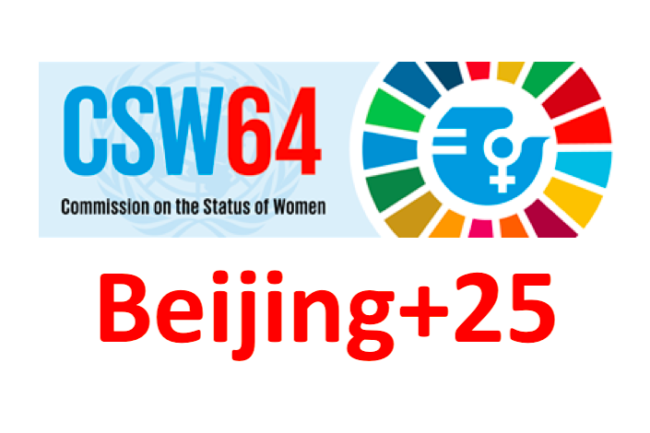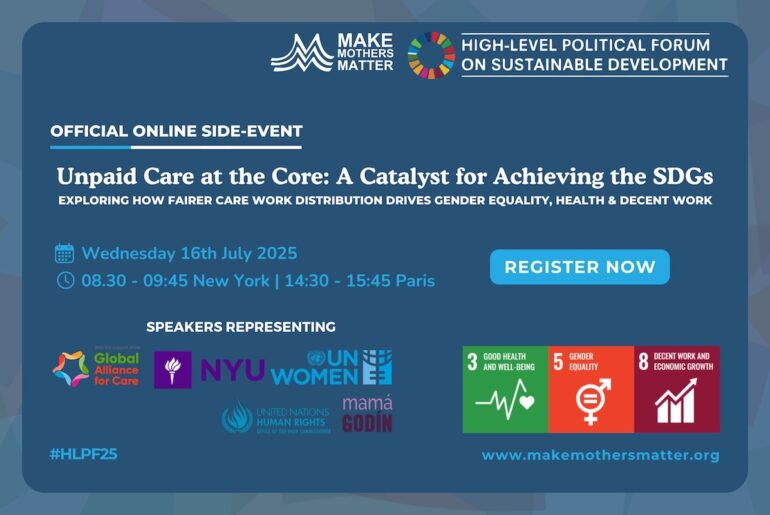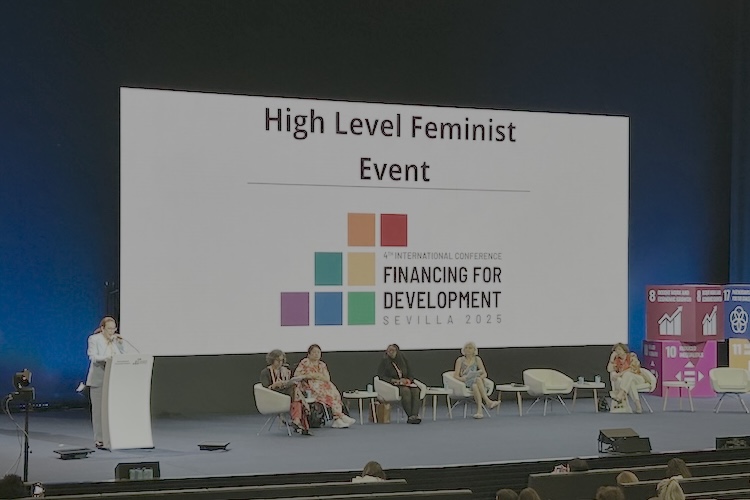Beijing+25 – Time to focus on unpaid family care work
16.01.20
UN New York, CSW64 - In a statement submitted ahead of the 64th Commission on the Status of Women, MMM highlights the specific perspectives of women in their role as mothers, and calls for policies that address the unequal distribution of unpaid domestic and care work, and support work-life balance for both men and women.

2020 marks the 25th anniversary of the Fourth World Conference on Women and the adoption of the landmark Beijing Declaration and Platform for Action (1995), which among others recognized the essential role of women as mothers:
§29 – The social significance of maternity, motherhood and the role of parents in the family and in the upbringing of children should be acknowledged. The upbringing of children requires shared responsibility of parents, women and men and society as a whole. Maternity, motherhood, parenting and the role of women in procreation must not be a basis for discrimination nor restrict the full participation of women in society. Recognition should also be given to the important role often played by women in many countries in caring for other members of their family.
Despite progress in some areas, women continue to suffer penalties and discriminations linked to maternity; and the essential social and economic contributions of women in their role as mothers still remain largely unrecognized and unaccounted for.
At this occasion, Make Mothers Matter reiterates its call to address 2 issues that particularly constraint women’s economic participation when they are mothers:
- The inequitable distribution of unpaid family care work, which is fueled by adverse social norms: more than two decades after Beijing, women still take on about three times more unpaid work than men, which remains the main obstacle to their participation in the Labour force
- The barriers that women face to participate in the economy, especially when they are mothers: discriminatory laws and practices and an economic environment that remains largely family-unfriendly.
In its written statement to the 64th UN Commission on the Status of Women, MMM provides recommendations of cross-sectoral policies and measures to address these 2 issues.
The benefits of policies that foster a more equitable distribution of both paid and unpaid care work between men and women and a better balance between work and family life for both men and women, which allow parents to better assume their caring and educational responsibilities, go well beyond Gender equality. They have broader ripple positive effects on the whole of society and even on businesses and the economy.
In particular, these policies should also be seen as an investment in childhood and human capital – an investment with positive impact and returns on investment in many other areas: prevention of poverty, prevention of social and health problems linked to burn out and stress, prevention of violence and school drop-out, prevention of delinquency and drug consumption, etc.
![]() MMM Statement as a UN Document Ref. E/CN.6/2020/NGO/128
MMM Statement as a UN Document Ref. E/CN.6/2020/NGO/128
The 64th Session of the UN Commission of the Status of Women (CSW64) will take place 9-20 March 2020 at the UN Headquarters in New York. its main focus will be on the review and appraisal of the implementation of the Beijing Declaration and Platform for Action, including an assessment of current challenges that affect its implementation and its contribution towards the full realization of the 2030 Agenda.
Envisioning care as a common thread to global crises
29.07.24
UN New York - Our virtual HLPF side-event brought together experts to shed light on how the various global crises we face (in particular climate change and other environmental crises,
We call for multi-stakeholder approach to recognise and support unpaid care work
21.07.24
UN New York - Participating in the meeting of the UN Economic and Social Council (ECOSOC) on care and support systems, MMM reaffirmed the principle of co-responsibility, which should underpin
The New EU Gender Equality Roadmap : A Call for Inclusion of Mothers
04.03.25
The European Commission’s initiative on a new Gender Equality Roadmap post-2025, marks a significant step forward in addressing gender disparities across the European Union. Make Mothers Matter (MMM








